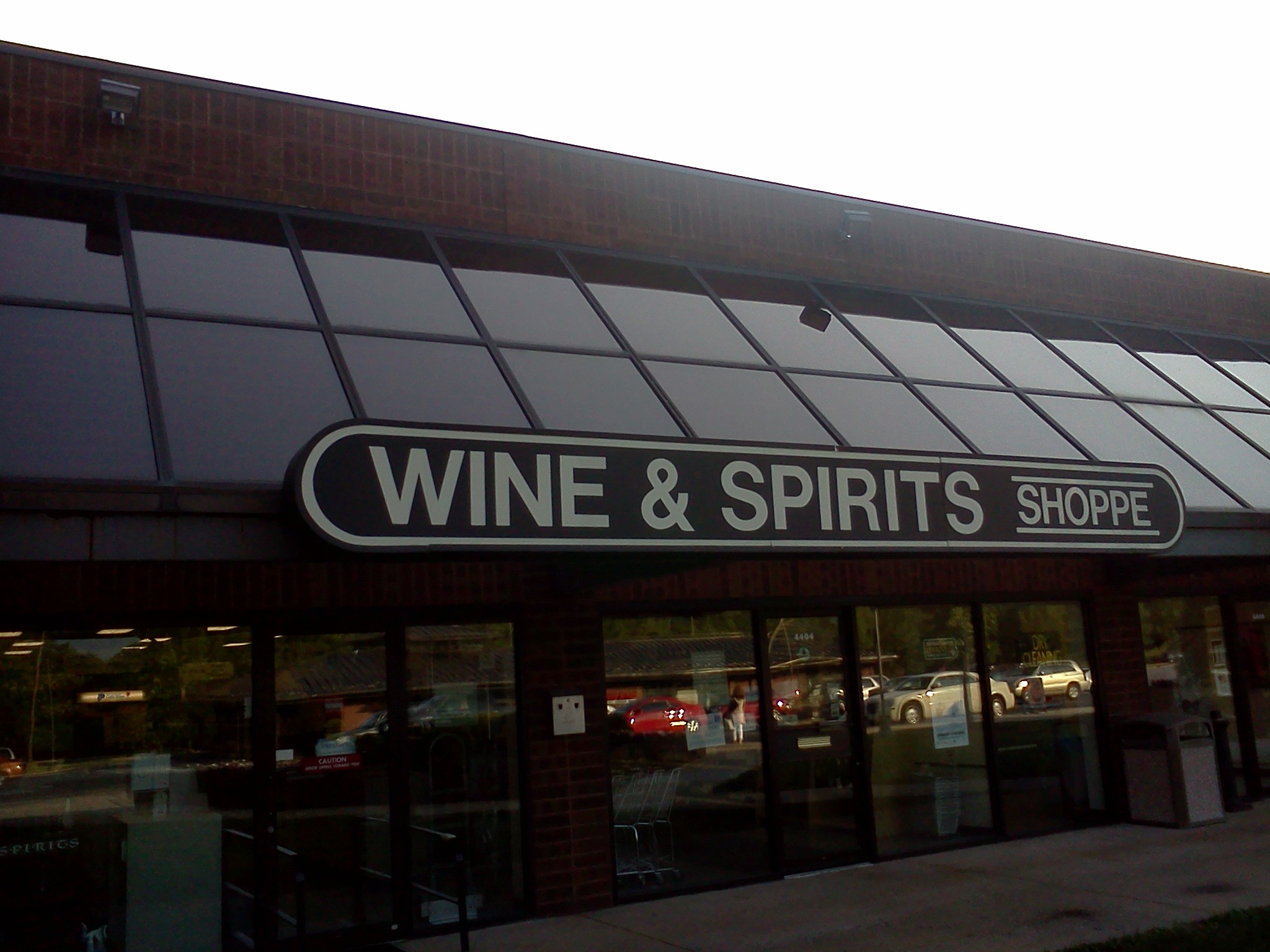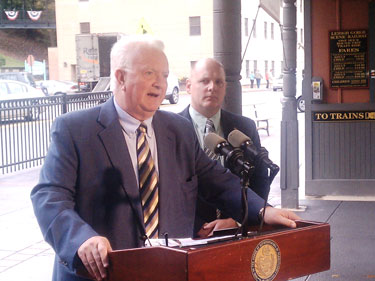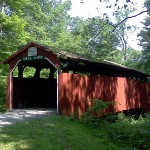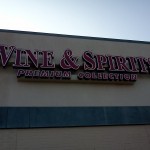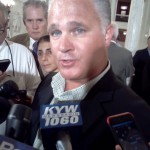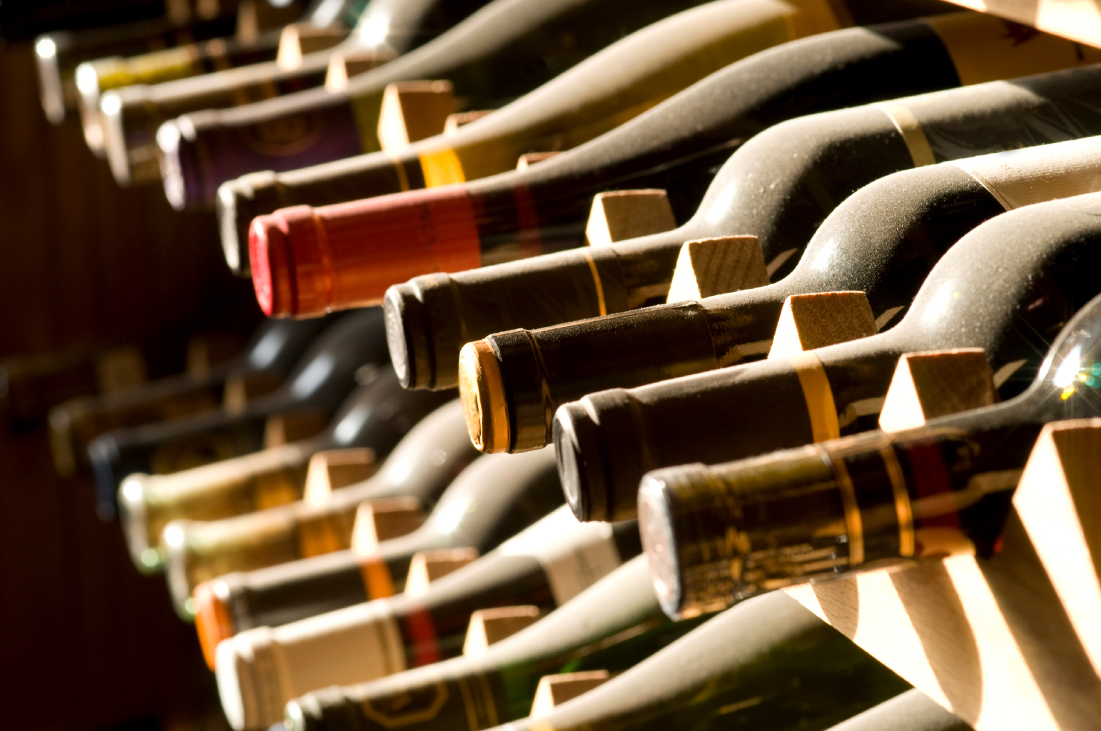Posts
Gov’s Office Releases Liquor Privatization Study
/in News /by PAMattersThe long-awaited and near 300-page analysis from the PFM Group concludes that privatization would improve the current liquor sales system and benefit Pennsylvanians financially. PFM says it’s possible to structure a fiscally neutral system, while delivering an upfront windfall of $1.1-billion to $1.6-billion. That’s a small number to privatization critics. “It’s going to cost thousands of jobs in Pennsylvania,” says Bill Patton, spokesman for House Democratic Leader Frank Dermody (D-Allegheny). “It does not raise the kind of money that its proponents claim.”
Money isn’t Governor Tom Corbett’s biggest gripe with Pennsylvania being one of only two states that control all aspects of the wholesale and retail distribution of wine and liquor. “I don’t care how much it is, we need to get out of the business completely,” Corbett said on Radio PA’s monthly Ask the Governor program. Corbett also expressed dismay with the Pennsylvania Liquor Control Board’s ubiquitous advertising campaigns. “The LCB controls and regulates alcohol,” Corbett says. “When we advertise, we’re encouraging people to drink more. We shouldn’t be doing that.”
Governor Corbett favors a privatization model that limits the number of retail outlets in PA. Under that approach, the PFM report suggests some minor price increases based on a fiscally neutral system. The report goes on to suggest that competition in highly-populated areas would mitigate any prices increases. “Even if you believe that competition will drive down prices… you’d end up with only 18-counties that are winners versus 49 losers,” says UFCW Local 1776 President Wendell Young. “In order to match the revenues we already have today, taxes are going to go up and consumers will be forced to pay more.”
The starting point for liquor privatization talks going forward will be House Republican Leader Mike Turzai’s proposal. Turzai stresses that PLCB expenses are growing much faster than its revenues. Turzai says, “It is time to sell Pennsylvania’s state liquor and wine stores.”
Lawmaker Suggests If We Sell The State Stores, We Spend The Money On Roads
/in News /by PAMattersIf Pennsylvania privatizes the state store system, one lawmaker is suggesting the money be spent on transportation. Representative Jerry Knowles (R-Berks/Schuylkill) is calling it the IFF Act; that stands for Infrastructure Future Fund. He says it means if we sell the state stores, the money should go to roads and bridges.
Knowles says under his proposal, every penny from a sale of state stores would go to construction or reconstruction of roads and bridges. He says the money would go into a fund to be spent over a five year period, in increments of 20%, plus the interest gained.
Knowles says it would help create jobs, spur economic growth and build a brighter future. He says he can think of no way to better spend the money than on roads and bridges. He says it would be one time spending over five years that would have an effect on all Pennsylvanians for at least the next 20 years.
Knowles says it’s not the cure-all, but it would be a piece of the puzzle in addressing transportation problems, while creating jobs and benefiting all Pennsylvanians. He says the state needs to look at a combination of ways to address its transportation funding problem.
Representative Knowles says he has about 3 dozen co-sponsors for HB2020, including the majority chairman of the State House Transportation Committee. He has also discussed the idea with the Governor’s office.
Are State Parks Ripe for Privatization?
/in News /by PAMattersIt’s no secret that Governor Tom Corbett supports privatizing Pennsylvania’s liquor stores, but a pending task force will examine other government functions that may be better served in the private sector. “It’s business that creates the jobs,” Governor Corbett stressed to reporters during a recent stop in Hershey.
Corbett even offered some first blush ideas: “In the prisons, what are we doing with health care? Who’s maintaining the health care? Can we privatize some of that? Can we privatize the running of the state parks? I will be, during the course of the summer, stopping by some of the state parks with the Secretary to see what’s going on there.”
But talk of privatizing state parks’ operations concerns PennFuture president & CEO Jan Jarrett. “If the state is having trouble funding state park operations, then how is a private vendor going to take them over and make money, unless they charge people for services that have traditionally been open to all Pennsylvanians for free.”
Jan Jarrett says PA already has the best state run park system in the country. “They were recognized as that last year, they won a gold-level award for how well the state park system is run by the current public employees that work there,” Jarrett said in an interview with Radio PA.
This is all just speculation, for now, as the governor’s task force hasn’t even been created yet. However, Corbett did offer one example of how privatization could work in the state parks, on a limited basis. “There are some places where we don’t have lifeguards in state parks.” He suggests privatizing that function may make it affordable again. “Having been a lifeguard, I would like to see lifeguards there, at least during the summer season.”
Capitol Hearing Kicks-Off Privatization Debate
/in News /by PAMattersHouse Majority Leader Mike Turzai (R-Allegheny) was the only testifier on the Liquor Control Committee’s agenda Thursday, but Chairman John Taylor (R-Philadelphia) stressed that this hearing was the first of many. “The goal of Chairman Santoni and I is to get the information on the table, and have everybody have the opportunity to have their say,” Taylor said.
The committee is expected to receive additional testimony during a series of statewide hearings. Taylor said each additional hearing will likely focus on one particular area of the privatization debate, such as fiscal impact, consumer impact and/or social impact.
Minority Chairman Dante Santoni (D-Berks) welcomed the public vetting process. “I expect that what we will learn is that our current system, with some changes under the umbrella of the PLCB, can address the concerns of most Pennsylvanians,” Santoni said, suggesting that the numbers behind privatization wouldn’t add up in the end.
Rep. Turzai says the auctioning off of 1,250 retail liquor licenses would generate significant upfront revenue, but emphasized that it’s time to move into the 21st century. “Should the entity promoting wine & spirits be the same entity that polices those sales? Doesn’t that inherently constitute a conflict of interest?”
Turzai went into great detail on his bill, which is reportedly 100-pages long, though it wasn’t publicly posted as of Wednesday afternoon. Union members – who oppose privatization – were well represented in the capitol hearing room, just as they were at Rep. Turzai’s news conference earlier this month.
Back in June, the Quinnipiac University Polling Institute asked Pennsylvania voters about the liquor store privatization issue, in the context of balancing the state budget. 69% of Pennsylvanians supported the idea.
Bill Would Get Pennsylvania Out of the Booze Business
/in News /by PAMatters
Spirits are high as House Majority Leader Mike Turzai (R-Allegheny) mounts a new campaign to privatize Pennsylvania’s liquor stores. “We should not be in the business of pushing alcohol sales… while at the same time being the agency that is charged with law enforcement,” Turzai says, referring to the current control system. In fact, Pennsylvania and Utah are the only two states that exercise complete control over their liquor systems.
The Turzai plan (HB 11) would auction off 1,250 retail liquor licenses to the highest responsible bidders in the private sector. 750 of those licenses would be for outlets with at least 15,000 square feet of retail space, while the remaining 500 licenses would be for smaller retailers. “We will absolutely maintain the tax revenue structure for the General Fund,” Turzai told reporters at a capitol news conference. “In addition, with the auctioning of the retail licenses and the sale of the wholesale licenses, we will absolutely make an upfront value.”
Rep. Turzai estimates that upfront windfall to be up to $2-billion dollars. The bill does not discuss how to spend that cash. Turzai says there will need to be a policy discussion on that, but points to state pension obligations and transportation infrastructure as two possibilities.
The Pennsylvania Liquor Control Board (PLCB) currently operates about 644- wine & spirits stores. All bottles receive a 30% markup and a handling fee, on top of the 18% Johnstown Flood Tax. The Turzai plan would replace those levies with a “Gallonage Tax.” Though – as alluded to in the earlier quote – Turzai believes the state will still collect $400 million dollars in taxes, each year.
Governor Tom Corbett does not believe Pennsylvania should be in the business of selling liquor and wine. He made that point clear when speaking to reporters on Tuesday. But, he had not yet seen Turzai’s proposal. “If we’re not to be in the business, how do we get out of it and where does it go, and where does the state get revenue. That all has to be taken into consideration,” Corbett said.
Privatization supporters will tell you that Pennsylvania consumers would benefit from the competition. They say privatization would lead to better selection, prices and convenience. But, opinions are mixed.
One of the biggest critics of privatization is Wendell Young, president of the United Food and Commercial Workers (UFCW) Local 1776, which represents about 3,500 employees at Pennsylvania’s wine & spirits stores. Young believes privatization would be a loss from day one. “Pennsylvanians end up getting hosed with the cost of privatization, while the ones that buy the licenses end up with the profit that the state currently enjoys,” Young has said. He contends that Pennsylvania has the best of both worlds right now: low consumption and high returns. Young also believes that privatization would cost 5,000 wine & spirits store workers their jobs.
How About Another Round of Liquor Store Privatization Debate?
/in News /by PAMattersDebate over state control of wine & spirits stores could be on tap, this fall, at the capitol. House Majority Leader Mike Turzai (R-Allegheny) is already seeking co-sponsors, and could unveil his latest bill soon. Supporters say Pennsylvania shouldn’t be in the booze business in the first place. In fact, Pennsylvania and Utah are the only two states that maintain complete control over their alcohol and wine systems. “That points to how antiquated, absurd and un-American this issue really is,” says Jay Ostrich, director of public affairs for the Commonwealth Foundation.
Ostrich says Pennsylvania consumers would be better off. “They’re seeking better choices and better prices, more economic and personal freedom. We believe liquor freedom, through privatization, will certainly give them just that,” he tells us.
But opponents say privatization doesn’t make financial or social sense. “The current system raises a lot of money for the state. There’s a lot of very strong evidence that we get more, because of the state’s monopoly of wine & spirits distribution, than states where it’s privatized,” says Stephen Herzenberg, executive director of the Keystone Research Center. Herzenberg points to research that suggests privatization would lead to more excessive consumption of alcohol. “The way we do it here helps reduce alcohol abuse and related social problems,” he says.
Herzenberg also stresses that no reliable estimate exists for the up-front revenue the state would receive if its 644 liquor stores were privatized.
The bill that Rep. Mike Turzai introduced last year would have created a new tax and fee structure. It would have started by nixing the Pennsylvania Liquor Control Board’s 30% markup and the 18% Johnstown Flood Tax. His plan called for a new “gallonage tax” instead. Full details of this year’s proposal aren’t yet available, but Turzai does have two new developments working in his favor: 1) his caucus is now in the majority, and 2) new Governor Tom Corbett does not believe the state should be in the business of selling liquor and wine.
The Pennsylvania Liquor Control Board wouldn’t be completely out of the picture, if wine & spirits stores were privatized. “We have an obligation to regulate and tax, but we don’t have to own and operate,” Turzai said in an interview with Radio PA this spring. Meanwhile, the PLCB reported record sales for the fiscal year that ended on June 30th. Nearly $2-billion dollars in sales brought in nearly $500-million dollars worth of tax revenue and profit transfers for the state.
Welcome to PAMatters.com, a new source for news and commentary from Pennsylvania’s capital. In addition to video, audio and pictures from the stories and events that affect YOU, you’ll also get some behind-the-scenes analysis via blogs from our award-winning staff of journalists.



